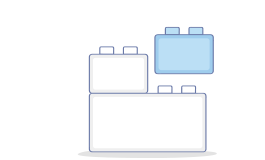Encyclopedia: Frameworks
The framework is a re-usable design platform for software systems, which provides support for code libraries and various scripting languages. There are frameworks for PHP, Perl, Python, Ruby and many other scripting languages. All software frameworks are built with the idea of re-usability of the code and provide tools that help programmers develop and mount together the different components of a software project. Various parts of the framework may be exposed through an API.
Symfony
Symfony is a web application framework for PHP5 projects. The Symfony PHP framework can be used on various operating systems including Linux, FreeBSD, Mac OS and Microsoft Windows. Using Symfony developers have the possibility to connect to almost every RDBMS (Relational Database Management System). Based on a Ruby-on-Rails-like MVC architecture, Symfony significantly reduces the PHP script execution time. Symfony features Ajax helpers, plugins, and an admin generator, which render the programming of complete applications an easy task. Developers can focus on applicative logic without losing time to write endless XML configuration files.
PHPDevShell
PHPDevShell is an open source PHP framework, aimed at developing web applications. Actually, PHPDevShell is not a common PHP framework, but rather an Application Management and Development GUI. Based on the Rapid Application Development architecture, PHPDevShell is fast, stable and very secure. PHPDevShell offers many features that a developer might require for any generic project, such as management of users, roles, groups, menus, crons, templates, hooks, logs, plugins, settings, plus various navigation, registration, theming, search filtering, caching and mailing options.
CodeIgniter
CodeIgniter is an open source PHP framework which is compatible with standard hosting accounts and various PHP versions (including both PHP4 and PHP5) and configurations. Based on the MVC platform, it needs almost zero configuration and does not require you to use the command line. The CodeIgniter PHP framework also supports routing and scaffolding. This modern MVC framework makes the creation of PHP application simpler as everything is in plain sight and most of the work, such as the loading of the libraries, the extraction of data from the model, and the rendering of the view, is done in the controller. CodeIgniter also provides classes for FTP, email, file uploading, XMLRPC, zip encoding, and more.
PRADO
PRADO stands for PHP Rapid Application Development Object-oriented. It is an open source, PHP5-based programming framework designed for professional web applications development. PRADO is an MVC-based framework, which allows event-driven programming. Also, PRADO provides support for different databases and AJAX-enabled web components, as well as generic caching modules, customizable and localizable error/exception handling and selective output caching support.
CakePHP
CakePHP represents a robust PHP development framework for handling every aspect of a web application, from the user’s initial request to the final rendering of a web page. Following the principles of MVC (model, view, controller), the framework allows programmers to easily customize and extend most aspects of the project application. CakePHP provides the customers with all the tools needed to get started coding quickly.
Akelos
The Akelos framework is a PHP4 and PHP5-based MVC (Model View Controller) platform similar to Ruby on Rails. The main goal of the Akelos framework is to help programmers build multilingual database-based web applications according to the MVC pattern. It favors the convention over configuration paradigm, which lets the programmers write less code and leads to the creation of uniform, simpler-to-understand scripts. The Akelos PHP framework provides support for Ajax and runs smooth in a shared hosting environment.
ZooP
The Akelos framework is a PHP4 and PHP5-based MVC (Model View Controller) platform similar to Ruby on Rails. The main goal of the Akelos framework is to help programmers build multilingual database-based web applications according to the MVC pattern. It favors the convention over configuration paradigm, which lets the programmers write less code and leads to the creation of uniform, simpler-to-understand scripts. The Akelos PHP framework provides support for Ajax and runs smooth in a shared hosting environment.
